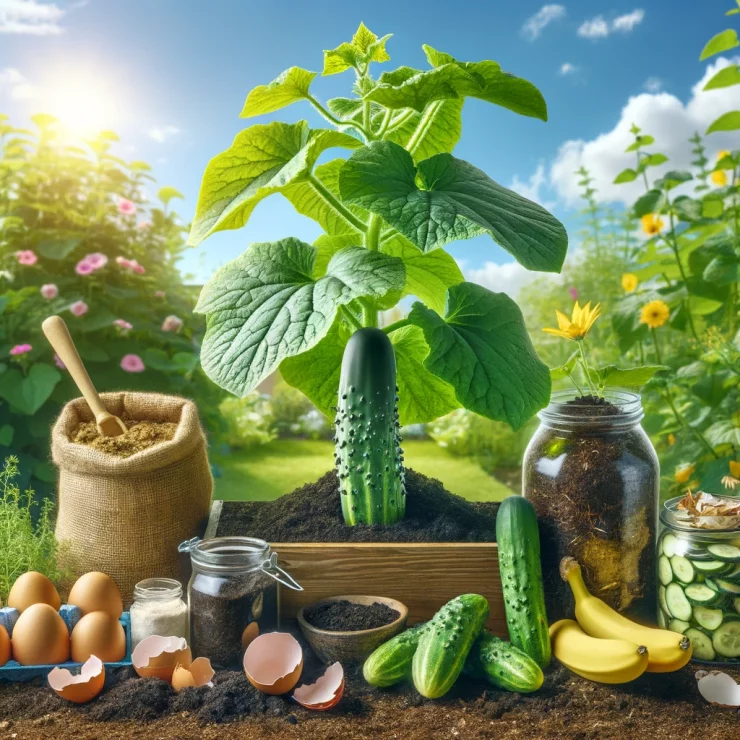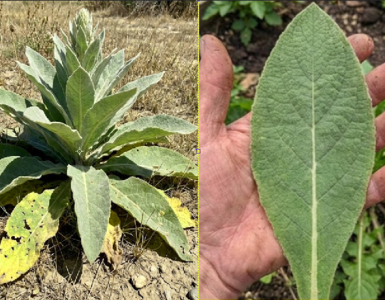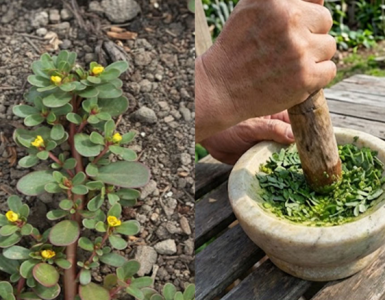Cucumbers are a delightful addition to any garden, offering crisp freshness to salads, sandwiches, and snacks. To ensure your cucumber plants thrive and produce an abundant harvest, providing them with the right nutrients is essential. While commercial fertilizers are readily available, homemade fertilizers can be just as effective and often more environmentally friendly. In this article, we’ll explore five of the best homemade fertilizers to promote the health and productivity of your cucumber plants.
Compost Tea:
Compost tea is a nutrient-rich liquid fertilizer that can be easily made at home using compost from your garden or kitchen scraps. To prepare compost tea, fill a bucket with water and add a generous amount of compost. Let the mixture steep for a few days, stirring occasionally. Once the water has turned a dark brown color, strain out the solids and dilute the tea with water until it resembles weak tea. Use this homemade fertilizer to water your cucumber plants once a week for a boost of essential nutrients.
Fish Emulsion:
Fish emulsion is an excellent source of nitrogen, phosphorus, and potassium, making it ideal for promoting healthy growth in cucumber plants. To make fish emulsion fertilizer at home, combine one part fish scraps or fish meal with two parts water in a blender. Blend until the mixture is smooth, then strain out any solids. Dilute the fish emulsion with water at a ratio of 1:4 before applying it to your cucumber plants. This homemade fertilizer is best applied every two weeks during the growing season.
Epsom Salt Solution:
Epsom salt, or magnesium sulfate, is a cost-effective and readily available fertilizer that can benefit cucumber plants. Magnesium is essential for chlorophyll production and overall plant health. To make an Epsom salt solution, dissolve 2 tablespoons of Epsom salt in 1 gallon of water. Use this solution to water your cucumber plants once a month to prevent magnesium deficiency and promote robust growth.
Banana Peel Fertilizer:
Banana peels are rich in potassium, which is essential for flowering and fruit development in cucumber plants. To create banana peel fertilizer, simply chop up banana peels and bury them in the soil around the base of your cucumber plants. Alternatively, you can blend banana peels with water to create a nutrient-rich liquid fertilizer. Apply banana peel fertilizer every few weeks throughout the growing season to encourage healthy fruit production.
Grass Clipping Mulch:
Grass clippings can serve as both a fertilizer and mulch for cucumber plants, providing essential nutrients while helping to retain moisture and suppress weeds. After mowing your lawn, spread a layer of grass clippings around the base of your cucumber plants, being careful not to pile them too thickly, as this can create a barrier that prevents water from reaching the soil. As the grass clippings break down, they will release nitrogen and other nutrients into the soil, promoting healthy growth in your cucumber plants.
Conclusion:
With the right care and attention, cucumber plants can thrive and produce a bountiful harvest in your garden. By using homemade fertilizers made from natural ingredients, you can provide your plants with the nutrients they need to grow strong and healthy without relying on synthetic chemicals. Experiment with these five best homemade fertilizers to see which works best for your cucumber plants, and enjoy a season filled with delicious homegrown cucumbers






Add comment